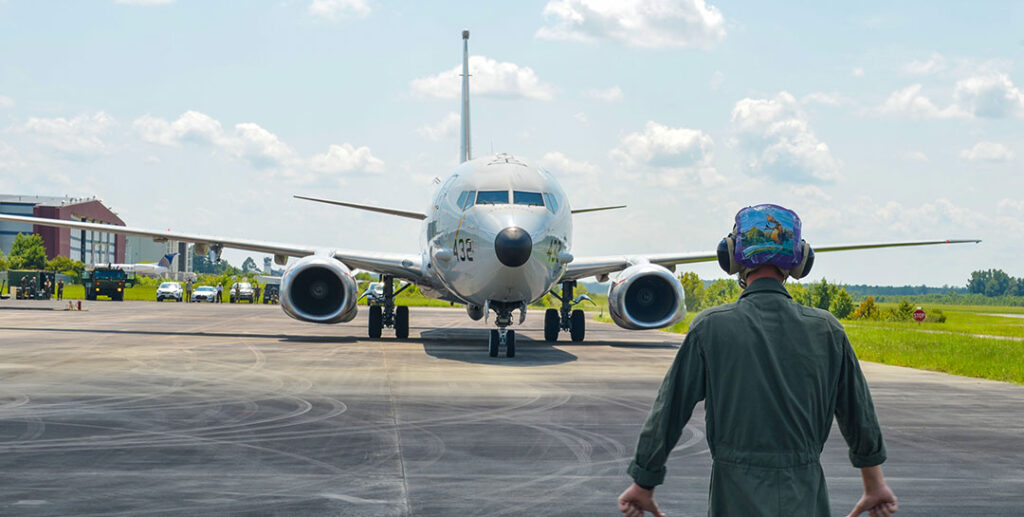Canada has fast-tracked a nearly $8 billion purchase of Boeing’s Poseidon P-8 maritime surveillance plane to bolster the domain awareness and interoperability of the Royal Canadian Air Force. SENIOR CHIEF PETTY OFFICER RJ STRATCHKO/U.S. NAVY
THE WATCH STAFF
Canada’s decision to spend more than $7.7 billion to buy 16 P-8A Poseidon maritime surveillance planes from the United States is necessary to counter an increased threat to its national security, the country’s defense minister said recently.
The expedited order to acquire the Boeing planes was done with a sense of urgency, Defence Minister Bill Blair told the Canadian Broadcast Corp. (CBC) in late November 2023.
“The world is becoming an increasingly dangerous place. Therefore, I’m very much seized with a sense of urgency to respond to the requirements they brought forward. We’re spending Canadian taxpayer dollars, we’re going to do it carefully, we’re going to do it thoughtfully. But we know the job has to be done.”
The purchase of the aircraft increases the interoperability of the Canadian Armed Forces, Blair said, as all of Canada’s Five Eyes allies — Australia, New Zealand, the United Kingdom and the U.S. — use the aircraft.
The P-8A Poseidon is the only “currently available, proven aircraft that meets all the operational requirements. … We believe that it is very much in the public and national interest to acquire the only capability currently available to us,” Blair told the CBC.
The Poseidon will complete the Royal Canadian Air Force’s (RCAF) transition away from the aging CP-140 Aurora fleet, which is increasingly outmoded in the face of heightened and frequent incursions and aggressive posture from Russia and the People’s Republic of China. The P-8s will be used to patrol Canadian coastlines and waters and have more advanced submarine-tracking capabilities than the Aurora, Blair said.
“This really is a question of national security. We have responsibilities to NATO, for example.”
The Canadian government noted the decision to buy the Poseidons from the U.S. government and Boeing was necessary to defend the strategically crucial Arctic approaches to Canadian territory.
“To defend Canadian interests in our maritime approaches, the Arctic, and internationally, the RCAF needs to be able to identify, detect, track and potentially engage advanced surface and subsurface threats using an array of highly sophisticated sensors and weapons. The RCAF must have self-protection systems that afford our aviators a measure of survivability against known threats,” read a November 30, 2023, news release from the Canadian government.
“The P-8A meets these requirements. It will protect Canadians, enhance our Arctic security and national sovereignty, and enable Canada to meet its NATO, NORAD and other obligations well into the future,” the release stated.
Canada will procure 14 of 16 Poseidons approved for sale and keep the option open to buy two more. Deliveries of the aircraft are expected to be completed as early as fall 2027, with full operational capability anticipated by 2033, according to Reuters.
The fast-tracked decision will let Canada get the planes years earlier than following the normal military procurement process, said Richard Shimooka, a senior fellow at Macdonald Laurier Institute, an Ottawa think tank.
Shimooka, a defense and foreign policy specialist, told Reuters that a lengthy competition would also risk Boeing terminating Poseidon production due to insufficient demand, which would raise costs if Canada decided to order the plane in the future.
Boeing said it will continue to make P-8s if there is “sufficient demand to maintain efficient and safe production,” Reuters reported.

